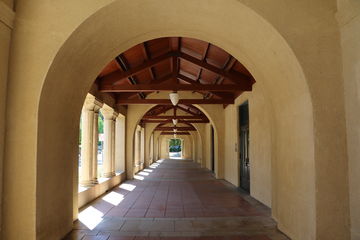Hebrew Conference: Written Word, Spoken Word

Written Word, Spoken Word:Rethinking the representation of speech in Literature
Thursday, February 26Building 360, Conference Room (map)
4:00–6:00 pm
Representational Speech and Contemporary Poetry
- Vered Shemtov, Anat Weisman: Opening Remarks
- Marjorie Perloff, The Question of Representational Speech in Conceptual Poetry
- Zali Gurevitch, Poetry Reading
Friday, February 27Building 260, Room 216 (map)
10:00 am–12:00 pm
Speech and Writing: From Logos to Eros | Chair: Gabriella Safran
- Hans Ulrich Gumbrecht, The Original Sin of Metaphysics? Derrida's Thesis about the Emergence of Logophono-Centrism in its Historical Context
- Jahan Ramazani, Between Speech and Writing: The Poetics of Poetic Code Switching
- Naomi Seidman, Talking Sex: Enlightenment, Unreason, and the Birth of the Modern Jew
1:15–3:15 pm
Ethics, Politics and Speech in Literature | Chair: Chana Kronfeld
- Renana Keydar, Rethinking Plurality: On Ethics and Storytelling in the Search for Justice
- Giddon Ticotsky, Between Literature and Ideology: Hidden Speeches in Israeli Prose
- Uri Cohen, Talking Hostilities: The Politics of Direct Speech
3:30–5:30 pm
Closing Session: Confronting Dualities, Writing Identities | Chair: Amir Eshel
- Dan Miron, What Can Be Learned from the Modern Hebrew-Yiddish Duality
- Russell Berman, Mimicry and Denial: Proliferating Identities in Jacobson's 'The Finkler Question'
- Roy Greenwald, The Blurry Boundaries between the Spoken and the Written: Performing Ritual Texts in Literature
This conference is organized by Hebrew@Stanford and is supported by the funds from the Taube Center for Jewish Studies, Stanford; Initiative for Religious and Ethnic Understanding and Coexistence; President's Fund; the Center for Comparative Studies in Race and Ethnicity; Department of Religious Studies; the Division of Literatures, Cultures, and Languages; and the School of the Humanities and Sciences.Dibur is a publication of ARCADE, Literature, the Humanities, & the World at http://arcade.stanford.edu/